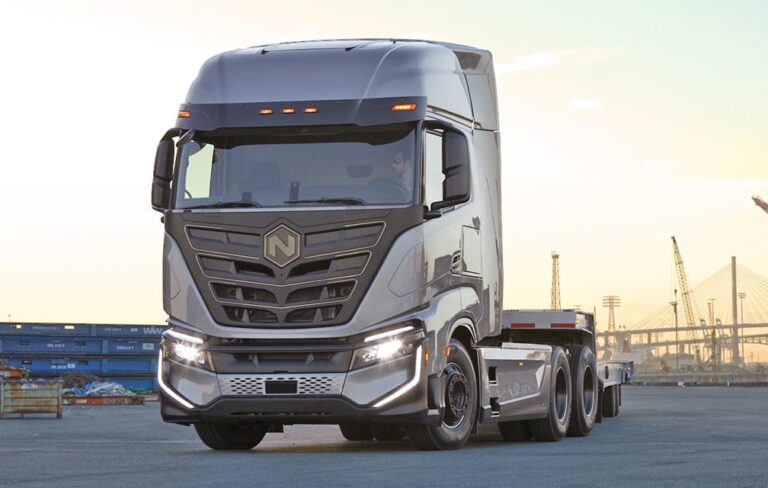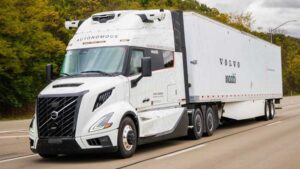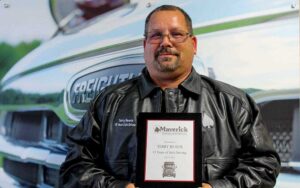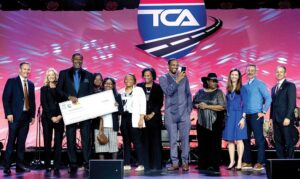WASHINGTON — Full electrification of the U.S. commercial truck fleet would require nearly $1 trillion in infrastructure investment alone, according to a new report from Roland Berger released Tuesday by the Clean Freight Coalition (CFC).
The study forecasts a realistic infrastructure build out for the electrification of medium-and heavy-duty commercial vehicles, exposing what the CFC calls a massive investment gap as state and federal policymakers mandate increased adoption rates of battery-electric commercial vehicles.
Key findings:
- Preparing today’s commercial vehicle fleet for electrification would require the commercial vehicle industry to invest upwards of $620 billion in charging infrastructure alone, including chargers, site infrastructure and electric service upgrades.
- Utilities would need to invest $370 billion to upgrade their grid networks to meet the demands of just commercial vehicles.
- This nearly $1 trillion expenditure does not account for the cost of new battery-electric trucks, which according to market research can be two to three times more expensive than their diesel-powered equivalents. For example, a diesel Class 8 truck costs roughly $180,000, while a comparable battery-electric truck costs over $400,000.
- The CFC, which consists of transportation stakeholders across the trucking and motorcoach industries, says that policymakers must address these cost concerns and infrastructure hurdles to make an electrified supply chain function smoothly for the American economy. The study found that while medium-duty vehicles will face fewer roadblocks, economic and operational constraints make electrification very challenging for the heavy-duty segment. Furthermore, the study outlined the significant improvements in battery range and charging infrastructure capabilities that would be needed to support a path for the electrification of long-haul vehicles.
“Electrification means focusing on the vehicle segments that are easier first; it means that we have to look at how fleets operate and potentially adjust; it means that we need better cooperation and planning across industries and governments; and it requires an openness to alternative technology paths to decarbonizing the heavy-duty segment,” said Roland Berger Senior Partner Dr. Wilfried Aulbur. “It also is clear that an industry with a yearly turnover of about $800 billion and a profit margin around 5% cannot invest $620 billion without financial support or a significant increase in freight rates.”
CFC Executive Director Jim Mullen said the study thoroughly examines the issues surrounding the infrastructure buildout necessary to electrify commercial vehicles.
“… it clearly shows how the heavy-duty vehicle industry’s needs are vastly different not just from other sectors of our economy, but from each other,” he said . “I want to thank the team at Roland Berger for so clearly outlining the challenges electrifying our supply chain poses as the industry and nation continue working toward our shared goal of reducing trucking’s impact on the environment.”
Truckload Carriers Association President Jim Ward said Rolen Burger’s in-depth analysis “does a great job of illuminating the challenges that arise when transforming the industry to 100% (battery electric vehicle) BEV. It provides great insight into the capital investment and upgrades required for utility distribution and transmission and identifies the vast number of chargers that will need to be installed to continue to deliver America’s goods in a timely manner.”
Born in Pine Bluff, Arkansas, and raised in East Texas, John Worthen returned to his home state to attend college in 1998 and decided to make his life in The Natural State. Worthen is a 20-year veteran of the journalism industry and has covered just about every topic there is. He has a passion for writing and telling stories. He has worked as a beat reporter and bureau chief for a statewide newspaper and as managing editor of a regional newspaper in Arkansas. Additionally, Worthen has been a prolific freelance journalist for two decades, and has been published in several travel magazines and on travel websites.















I WOULD BET MY LIFE THAT IF THEY TRY ELECTRIFYING SEMI TRUCKS THE INDUSTRY WILL COLLAPSE, THEY WILL BE BROKE DOWN EVERYWHERE IN THE COUNTRY. tHE GROCERY WAEHOUSES WILL BE EMPTY. THE REFRIGERATED TRAILERS WILL ALSO BE BROKE DOWN SPOILING LOADS OF REFRIGERATED FOODS. THE WAY TESLA TRUCKS ARE SETUP WITH THE STEERING WHEEL IN THE MIDDLE OF THE TRUCK WILL CAUS A BUNCH OF ACCIDENTS. IT JUSTWONT WORK. ANOTHER THING IS THEY WOULDNTY GET A CHANCE TO USE THEM IF THEY DIDNT CLEAR ALL OF THE DEAD ELECTRIC CARS ON THE ROAD, WELL THATS IF THEY EVER GET ANY SOLD. ITS JUST NOT GONNA HAPPEN. BIDEN GOT LIKE 50 BILLION DOLLARS TO PUT CHARGING STATIONS ALL OVER THE COUNTRY AND HE PUT 4 IN, ONE IN PA., ONE IN OHIO, I THINK KENTUCKY OR INDIANA. ANYWAYS HE WONT AND DONT KNOW WHERE THE MONEY WENT. HE WONT ANSWER. PROBABLY TO ILLEGALS SO THEY CAN KEEP MOLESTING MINORS AND ATTACKING OUR POLICE.
I am as anti-Biden as they come…Battery vehicles have their place- I drive an old plug in hybrid Chevy Volt that I really like. My wife drives a newer one, same car. Makes perfect sense. Plug them in at night like a cell phone, and most of our commuting and errands can be covered by the battery. Gas Engine kicks in when the battery runs out. We have a house and garage to park them in and charge them. But trying to make all commercial vehicles run on electricity is NUTS. Maybe some short haul garbage trucks and the like, but not over the road trucks.